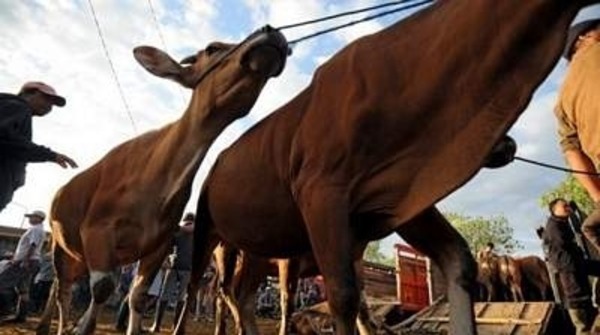CAIRO: An Arab League committee on Syria was set to ask Arab foreign ministers on Sunday to extend a monitoring mission in the country by one month, sources attending the committee meeting said.
Hundreds of Syrians have been killed since the mission began its work in late December and political opponents of President Bashar Al-Assad are demanding the League refer Syria to the United Nations Security Council.
"The committee will recommend an expansion of the monitoring mission for an extra month," said one source attending the committee meeting in Cairo who asked not to be named. The decision was confirmed by a second source at the meeting.
The foreign ministers are due to meet later on Sunday to debate the committee’s conclusions on the mission, whose mandate expired on Thursday, and will have the final word on whether to extend, withdraw or strengthen it.
Arab states are divided over how to handle the crisis in Syria and critics say the monitoring mission is handing Assad more time to kill opponents of his rule.
Some want to crank up pressure on Assad to end a 10-month-old crackdown on a popular revolt in which, according to the United Nations, more than 5,000 people have died. Syria says 2,000 security personnel have been killed in the violence.
Others worry that weakening Assad could tip Syria, with its potent mix of religious and ethnic allegiances, into a deeper conflict that would destabilize the entire region. Some may fear the threat from their own populations if he were toppled.
Two representatives of Arab states told Reuters some small disagreements needed to be ironed out by the five-nation Syria committee on the phrasing of its final report but there was broad agreement on the outlines.
"The differences were mainly on the phrasing of the evaluations and recommendations … but we managed to agree on most of those points and on how to reach agreement on the remaining part," one said.
The opposition Syrian National Council (SNC) says the observers lack the resources and clout to truly judge Assad’s compliance with an Arab peace plan Syria signed up to in November and has called upon the Arab League to refer the Syrian crisis to the Security Council.
But Egypt, Algeria and Tunisia told the head of the Arab League, Nabil El-Araby, they would oppose such a move, a League source said on Sunday.
"The three states support solving the Syrian crisis inside the Arab League," the source told Reuters.
Funeral procession
Two Syrian army officers, an infantryman, a rebel and two civilians died in clashes on Sunday in Talfita, a village in the Damascus region, said the Syrian Observatory for Human Rights.
Intermittent fighting continued in the town of Douma, nine miles (14 km) northwest of the capital, which had been encircled by the military, said the UK-based rights group.
An opposition activist and a rebel fighter in Douma told Reuters by telephone the fighting had eased and the rebels held about two thirds of its main streets.
Masked fighters had set up checkpoints and a funeral procession for five civilians killed on Saturday was passing through the town, they said. Angry cries could be heard in the background as they spoke.
The rebel fighter said there were several casualties on Sunday but no confirmed deaths.
The head of the monitoring effort, Sudanese General Mohammed Al-Dabi, was presenting his findings to the League’s Syria committee and the foreign ministers of the 22-member regional body will decide their response later on Sunday.
Maintaining the 165 monitors, and perhaps giving them a broader remit, could give Arab states more time to find a way out of the crisis.
El-Araby met several Arab officials on Saturday and another source close to the League said the ministers could decide both to extend the mission and to offer it additional support in the form of UN or military experts.
Qatar and Saudi Arabia, regional rivals of Syria and its ally Iran, are impatient for decisive action against Assad, and Qatar has suggested sending Arab troops to Syria.
The League is due to discuss the idea but military action against Assad would need unanimous backing and several countries still believe in a negotiated solution, League sources say.
The Security Council is also split on how to address the crisis, with Western powers demanding tougher sanctions and a weapons embargo, and Assad’s ally Russia preferring to leave the Arabs to negotiate a peaceful outcome.
Suggestions to send in UN experts to support the Arab observers made little headway at the last meeting earlier this month and Damascus has said it would accept an extension of the observer mission but not an expansion in its scope.
Syria, keen to avoid tougher foreign action, has tried to show it is complying with the Arab peace plan, which demanded a halt to killings, a military pullout from the streets, the release of detainees, access for the monitors and the media, and a political dialogue with opposition groups.
This month the Syrian authorities have freed hundreds of detainees, announced an amnesty, struck a ceasefire deal with armed rebels in one town, allowed the Arab observers into some troublespots and admitted some foreign journalists.
Assad also promised political reforms, while vowing iron-fisted treatment of the "terrorists" trying to topple him. –Additional reporting by Erika Solomon in Beirut and Lin Noueihed in Cairo


